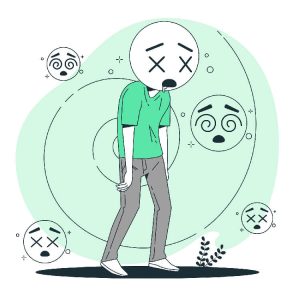
Are Alcoholics Weak Willed? The resounding answer to this is ‘no’. Many alcoholics develop a drinking problem for precisely the opposite reason. The conventional view of an alcoholic as being a homeless old tramp on a park bench with a brown paper bag containing a bottle is entirely misleading. There are some alcoholics like this but the vast majority are living in homes just like yours, holding down jobs and, to some outsiders, functioning at least reasonably well. If you were to go to a meeting of Alcoholics Anonymous. You would find many successful people who have been or are at a senior level in their profession. Alcoholism does not discriminate in terms of sex, age, social class, education, intelligence, race, religion or sexual orientation.
Strong Willed – Weak Willed
Indeed, many alcoholics are strong willed, intelligent and successful and it is often these characteristics that lead us down the path of alcoholism. Consider the publicly known figures who are or were alcoholics: actors and actresses such as Richard Burton, Anthony Hopkins, Elizabeth Taylor, Larry Hagman; sportsmen such as George Best; musicians such as Sir Elton John and Robbie Williams; politicians such as Charles Kennedy and George Bush, to name but some. The same is true in all other professions – the medical profession, the law, the police etc etc. – the very people who see on a daily basis the damage that alcohol can cause and the destroyer that it is. These people who become addicted are at the top of their profession because of their drive and strong wills.
It is these strong wills that get us into trouble. When we want to drink and know that we shouldn’t, we have an argument with ourselves – I want a(nother) drink / but I shouldn’t have one, it will make me feel worse tomorrow etc – but what do we do? One side of our brain argues with the other and one side wins – usually the one saying have a(nother) drink.
Willpower
Many of us have used willpower and been able to stop. The problem is that it is not just about stopping. It is about changing our attitude towards drinking. If we just put down the drink but make no other changes, then we become a ‘dry drunk’, someone that is getting by without alcohol by gritting our teeth and using willpower to avoid picking up that first drink. We can be irritable and frustrated. If we are so miserable like this, we think we might as well drink. We have not solved the problem. We are still in the trap of alcoholism and realise that to have to use willpower like this for the rest of our lives is going to be monotonous and tough.
Learned Behaviour
The truth is that we have to accept that alcohol is not required in our lives in order for us to be happy, fulfilled and to have fun. If I have no desire for a curry (which I don’t as I don’t like them), then it takes no will power for me never to have one. As a child you never craved a drink. It was learned behaviour. We need to ‘unlearn’ it and then we can remove the desire for alcohol.
The Haynes Clinic offers residential treatment for dependency on alcohol, drugs and prescription medication. We can also help with other addictions such as gambling and with eating disorders.
